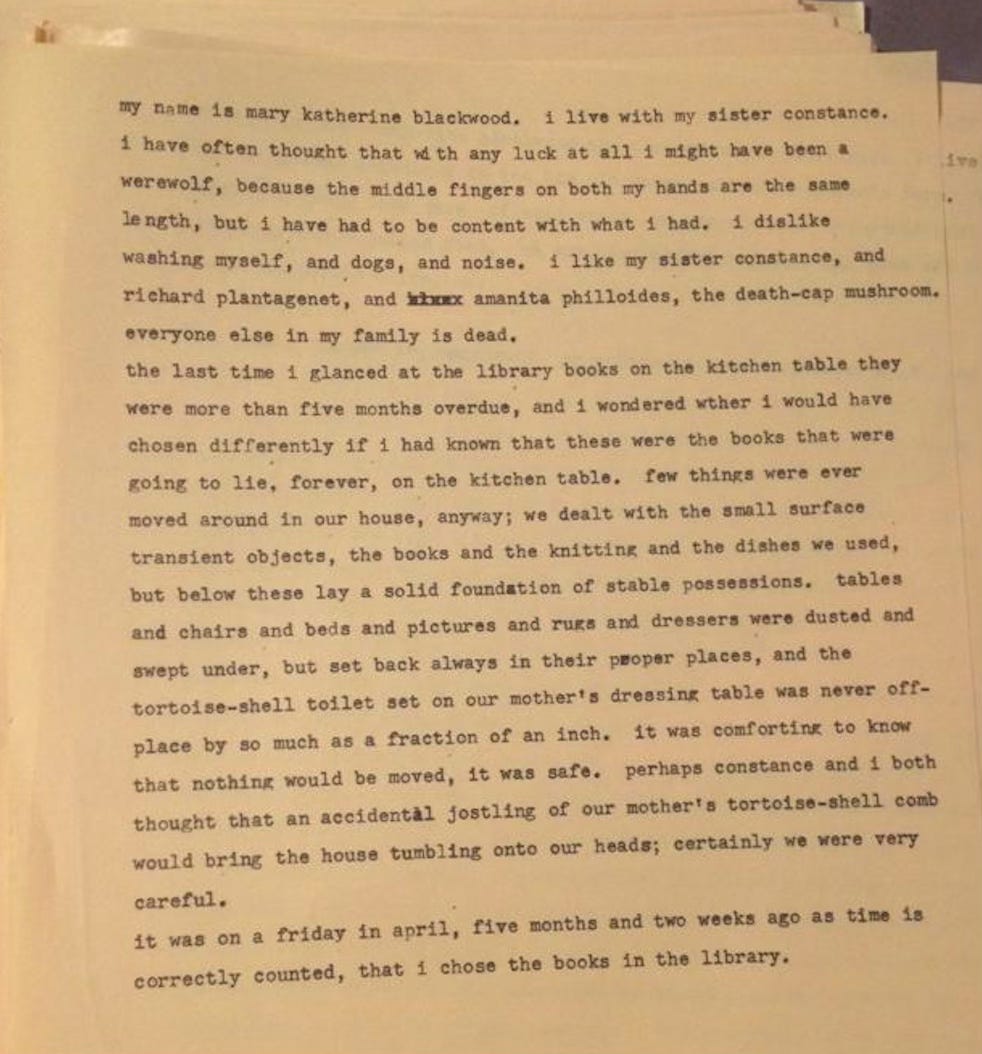[originally published 31 January 2025]
If you’re attempting to get some writing done and are feeling tired and uninspired, consider an experiment I’ve often found useful:
Choose some short story (or, I suppose, some essay or some poem) you’re particularly keen on, sit yourself down with a pad and pen (or open a Word file, if you’re as loath to write by hand as I’ve gotten), and copy out the entire thing, word by word, punctuation mark by punctuation mark.
In the process of re-creating another writer’s writing—and, yes, I know this is going to sound a bit woo-woo, but, hell, I live in Southern California now—you may well feel the writer’s intent sliding up your fingertips, through your arms, past your shoulders, and right into your noggin, and you may well also find yourself gaining valuable insights as to what the writer was up to. And you may, further also, in the physical act of writing—even if what you’re writing is someone else’s writing—dislodge some of the cobwebs and pebbles and other assorted gunk that are clogging your brain,1 leaving you that much closer to your own insights and, hopefully, creativity.
At the very least, it’s a fun thing to do.
Also (I was asked last night about good writing about writing, and this leapt to mind), I can’t recommend to you more enthusiastically Shirley Jackson’s “Garlic in Fiction,” which is absolutely revelatory about a master writer’s decision-making processes. You can find the essay online at The New Yorker’s site, and it’s also included in Let Me Tell You, an anthology of Jackson’s previously uncollected (and some previously unpublished) material I had the pleasure of copyediting with my own fair hand a decade or so ago.
Today’s cover image is a page of Shirley Jackson typescript. You may recognize it as the opening of We Have Always Lived in the Castle. My gratitude to Jackson’s supreme biographer Ruth Franklin for having posted it in the first place.
Thank you all for being here, and thank you, especially, to subscribers, and to paying subscribers. I quote my friend the superb Connie Schultz: “You don’t have to pay to read my writing. I understand that not everyone can do so, and I am grateful to those of you who do because you make it possible for me to keep writing.”
Sallie is grateful too.
Here’s a little copy-editor’s-brain-at-work for you: I’d originally written “that are clogging up your brain,” then I realized not only that the “up” in “clogging up” is unnecessary but that I’d used two “up”s just above, in “sliding up your fingertips” and “what the writer was up to.” I can get a little intense about repeated substantive words in proximity. (So can you get a little intense about that sort of thing, if you’re so inclined.) Unless, that is, I’m doing it very much on purpose, as I did, in this paragraph, with “writer” and “writing.”




Like learning to paint by copying the masterpieces in the museum in the classical tradition, this is a tried and true writing exercise.
Another interesting exercise is to parse, on paper, a sentence by a known author. We used to do this in school - circa 1963 - usually taking a Henry James sentence … which soon turned into a Thomas Brothers roadmap. Fun times.